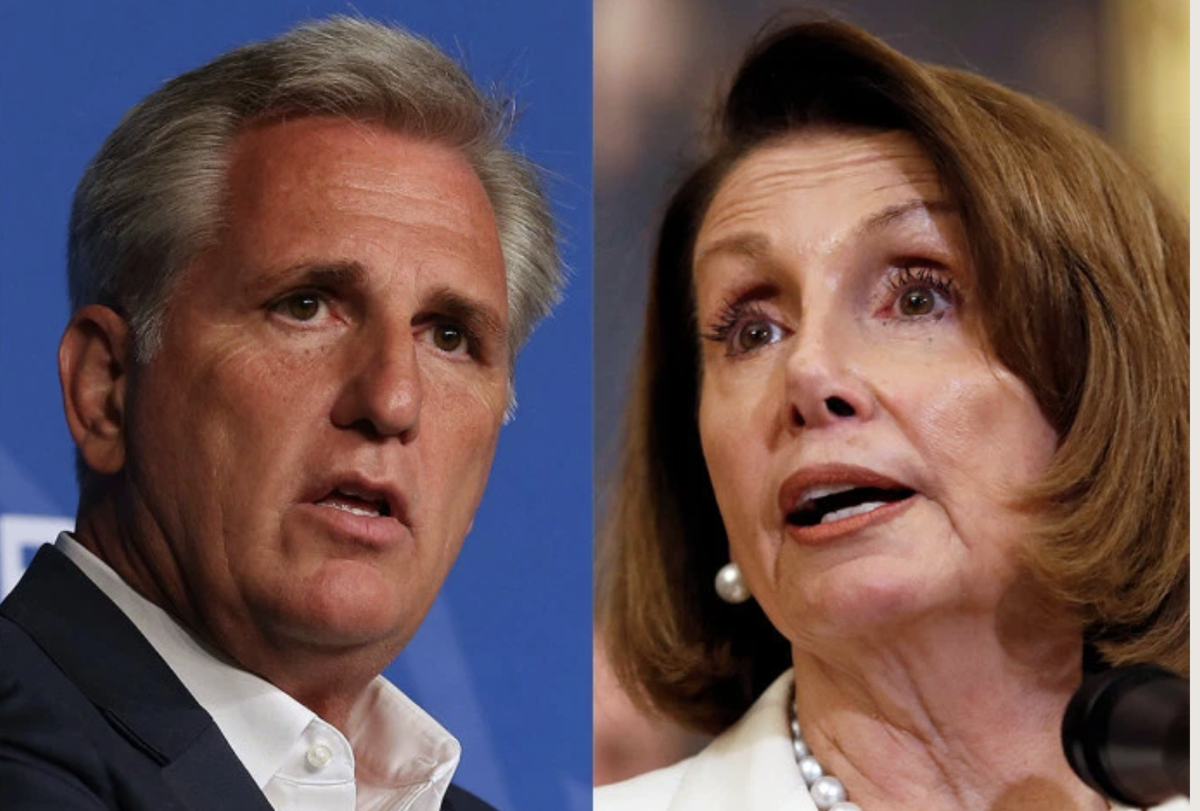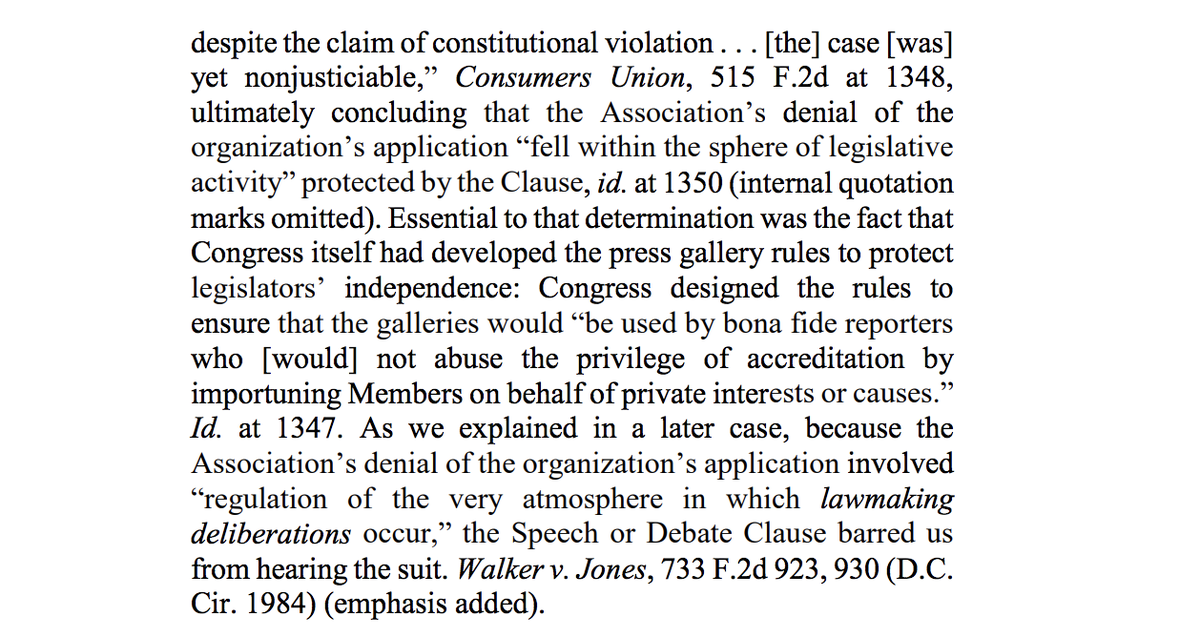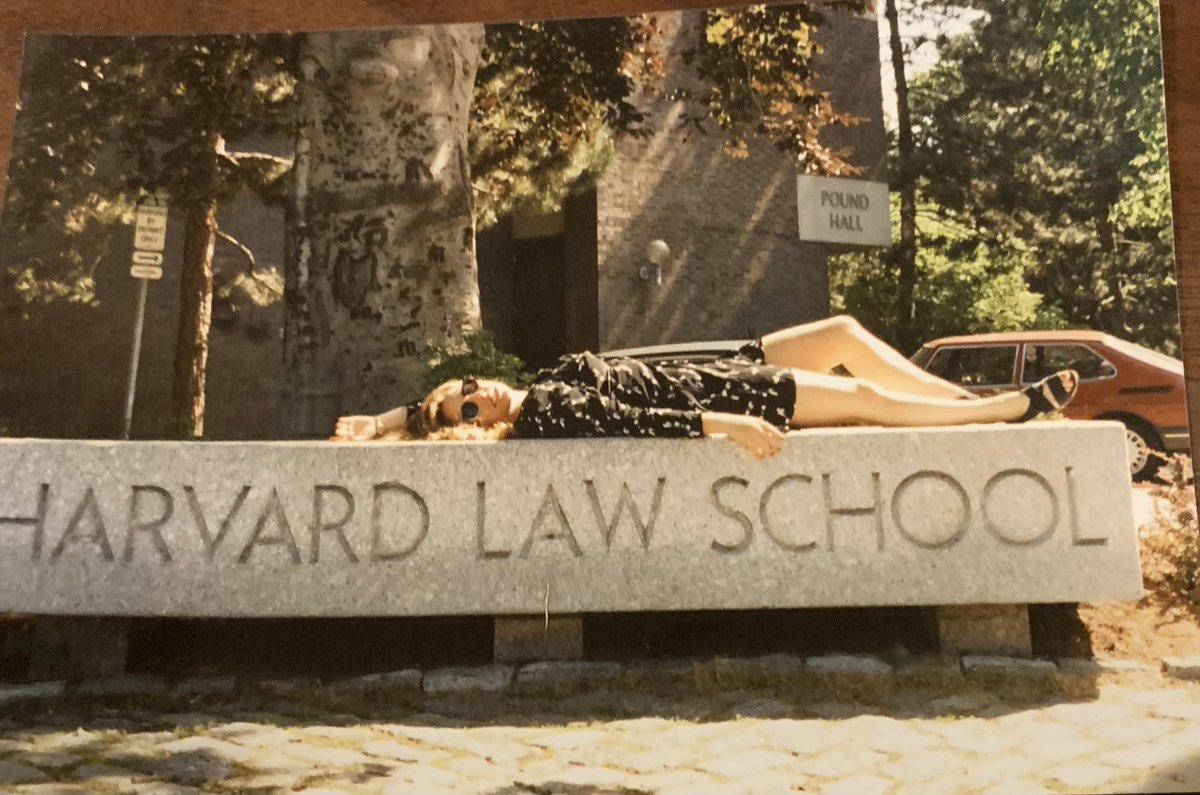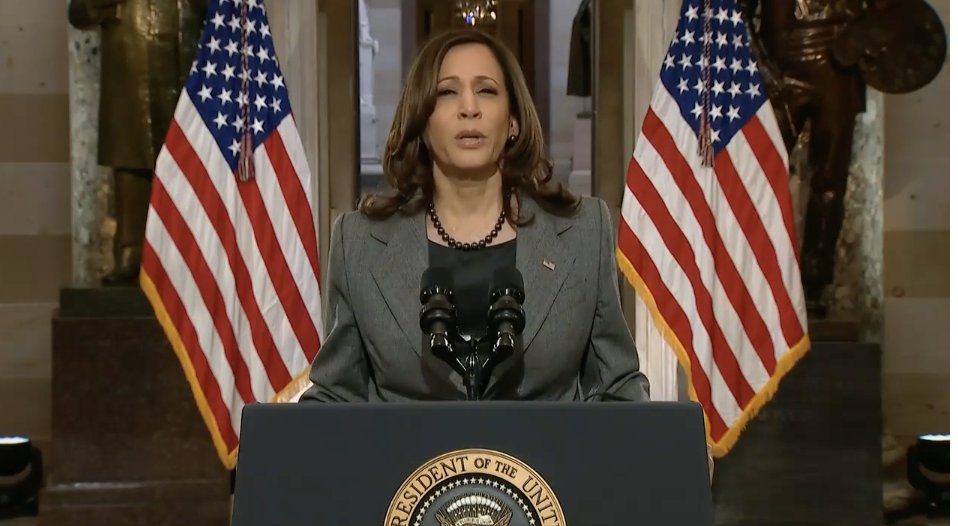
🧵 Okay. I'm listening by phone to the hearing in McCarthy v. Pelosi. In this case, the Republicans sued to block the Dem-controlled House from using a proxy voting system to allow for remote legislating
Parties are appearing by video. Hearing begins momentarily at 2 p.m.
1/
Parties are appearing by video. Hearing begins momentarily at 2 p.m.
1/

The judge presiding is Rudolph Contreras. To listen, call:
Toll Free Number: 888-636-3807
Access Code: 8481056
2/
Toll Free Number: 888-636-3807
Access Code: 8481056
2/
Judge said, good afternoon. He's read all of the pleadings. Lots of bad feedback as he's talking.
"I'm completely open to persuasion," the judge said. "Give me your best pitch."
Deputy asked everyone to mute their phone if they are not addressing the court.
3/
"I'm completely open to persuasion," the judge said. "Give me your best pitch."
Deputy asked everyone to mute their phone if they are not addressing the court.
3/
Attorney Charles Cooper representing the plaintiffs (160 members and five private citizens who are constituents of those members).
He is challenging House Res. 965.
Here's a link to that bill
4/
He is challenging House Res. 965.
Here's a link to that bill
4/
Cooper says in 1793, a yellow fever plagued the country and ravaged Philadelphia. George Washington asked James Madison if he had the power under the Constitution to move Congress out of Philly.
5/
5/
Cooper said that Madison concluded that they had to convene in person at the seat of government (then in Philly). Said they did not discuss proxy votes (which is actually what the House now is asking for).
6/
6/
"It's simply impossible, I would submit, to read the Constitution" to ignore requirement that members of Congress have to be physically present to vote.
He also points to the forum clause.
7/
He also points to the forum clause.
7/
He's quoting various passages that uses the word "present." Also language that adjourning can only be to "where the houses shall be sitting".
Said House and Senate are deliberative legislative bodies, where people would gather face to face, to debate and listen.
8/
Said House and Senate are deliberative legislative bodies, where people would gather face to face, to debate and listen.
8/
Now Cooper has moved onto the Spanish Flu of 1918. Said that pandemic killed the equivalent of 2 million people in the US (based on relative population), and yet there was not proxy voting.
9/
9/
Cooper again points to that "unbroken American history and tradition" which is "clear confirmation" of the meaning of the text of the constitution.
10/
10/
Judge Contreras said they would be "somewhat informal" today as he is in no hurry. Wants parties to say what they need to say.
Accordingly, Cooper is now addressing the arguments that the defendants from the House makes.
12/
Accordingly, Cooper is now addressing the arguments that the defendants from the House makes.
12/
Cooper addresses House argument that the voting power of members is not diluted ad each member is still entitled to just one vote. And that the proxy has no discretion to deviated from the way that the absent member instructs.
13/
13/
Cooper said to the judge, "you must assume that I'm right and that the House" proxy plan is unconstitutional and that no vote cast by a proxy is valid. Those votes are null.
14/
14/
Therefore, Cooper says, votes are diluted if the proxy votes are wrongfully counted. What he calls the valid ones then become diluted as does the voting strength of the constituents.
15/
15/
Judge asked Cooper about argument (in the briefs) about Congressman Raskin casting proxy votes
He received 7 authorizations to cast proxy votes. If he cast all 7 plus his own 1, and 7 are invalid. If they were, then Raskin cast 8 votes, and helps to dilute all valid votes
16/
He received 7 authorizations to cast proxy votes. If he cast all 7 plus his own 1, and 7 are invalid. If they were, then Raskin cast 8 votes, and helps to dilute all valid votes
16/
Cooper references Michel v. Anderson (DC Cir 1994), and a case called Vanderjack
casetext.com/case/michel-v-…
17/
casetext.com/case/michel-v-…
17/
"Appellees [members of House and Senate] have not been singled out for specially unfavorable treatment as opposed to other Members of their respective bodies, but claim that the Act causes a type of institutional injury which damages all Members of Congress equally."
19/
19/
Cooper said this case means there is no standing to address an institutional injury. And he said the Raines case distinguished Coleman v. Miller, 307 U. S. 433.
20/
20/
Now Cooper is having us dig into footnote 7 in the Raines decision.
For those following at home, yes, law gets this much into the weeds and much, much more.
21/
For those following at home, yes, law gets this much into the weeds and much, much more.
21/
Bottom line is that Cooper claims the Raines case is not incompatible with the Michel case.
Note, Cooper is still discussing standing, contending that his clients have standing.
23/
Note, Cooper is still discussing standing, contending that his clients have standing.
23/
Cooper has moved onto the case Cambpell v. Clinton. Page 21, fn 2, DC Cir.
Says Michel v. Anderson is good law. Also said Michel v. McConnell made that clear too. See law.justia.com/cases/federal/…
24/
Says Michel v. Anderson is good law. Also said Michel v. McConnell made that clear too. See law.justia.com/cases/federal/…
24/

To be clear, all of this talk of dilution and these cases is to address the argument the defendants made that the plaintiffs here (House Republicans and some constituents) lacked standing.
25/
25/
The judge is asking about the last pleading for the plaintiffs. Is it the actual power to cast the vote that has special significance?
Yes, said Cooper
26/
Yes, said Cooper
26/
Cooper said "The power to cast the vote cannot be separated from the other elements of representation."
Argue, listen, advocate, learn, debate are all elements of representation linked with voting. These elements "cannot be disaggregated."
27
Argue, listen, advocate, learn, debate are all elements of representation linked with voting. These elements "cannot be disaggregated."
27
Cooper said there is no constitutional difference between granting a general proxy (as in "vote however you please on my behalf) and a specific proxy, as both dispense with the member being present
28/
28/
Judge Contreras said, one thing Doug Letter (for defense) is arguing that the vote must be cast from the floor and not from afar, that the argument merges with your primary argument of no proxy voting at all.
Cooper said "that is the case."
29/
Cooper said "that is the case."
29/
In order to be counted as a majority to form a quorum and to actual vote, you must be present, said Cooper
30/
30/
Judge Contreras said "the only thing I was trying to establish" was that the two arguments about general and specific proxy votes are "inextricably intertwined."
31/
31/
"the Clause’s 'shield does not extend beyond
what is necessary to preserve the integrity of the legislative process'"
33/
what is necessary to preserve the integrity of the legislative process'"
33/
Now he's in Walker v. Jones, at 933 on the Speech and Debate clause. Said it means that he has to look at the acts of carrying out H.R.965 with a jaundiced eye.
34/
34/
The judge asked Cooper "How do you distinguish Consumer's Union on the Speech or Debate clause issue?
"That's their best case, your honor."
Some laughter.
35/
"That's their best case, your honor."
Some laughter.
35/
Consumers Union is a 1973 decision. Holding: "The exclusion of Consumer Reports from accreditation to the periodical galleries of the Senate and House violates the First and Fifth Amendments to the Constitution."
law.justia.com/cases/federal/…
36/
law.justia.com/cases/federal/…
36/
Cooper said Barker distinguishes Consumers Union. He cites this portion of Barker.
Said Speech and Debate clause should not shield the any of the defendants here
37/
Said Speech and Debate clause should not shield the any of the defendants here
37/

Note that the defendants in the case including the Sargent at Arms and House Clerk, not just Speaker Pelosi.
38/
38/
We are an hour in and we are still listening to the plaintiff's counsel. I am going to make a cup of coffee (which means I'll be away from my laptop, but still listening on my phone to the hearing). BRB
39/
39/
The Judge invited Doug Letter to speak. They are not taking a break.
Judge asked whether there has always been a quorum for votes. Letter said yes. Also that there is a scheduled recess coming, but they could stay.
40/
Judge asked whether there has always been a quorum for votes. Letter said yes. Also that there is a scheduled recess coming, but they could stay.
40/
Letter said "it's a pleasure and honor to appear against my longtime friend Mr. Cooper."
41/
41/
Letter said instead of jumping to the merits, he will "get to all of that in time." Said we have a number of jurisdictional and justiciability arguments.
42/
42/
Letter said, "I don't recognize the rule Mr. Cooper is talking about" when he discussed dilution.
Said @RepRaskin did not vote 7 times. Letter said, he transmitted the votes of other members.
43/
Said @RepRaskin did not vote 7 times. Letter said, he transmitted the votes of other members.
43/
Letter said he's simply transmitting votes, not thinking for himself.
Cooper said this is obviously not true that it's the same thing as a general proxy. "That's nowhere near what was done here."
Just like being a tally clerk
44/
Cooper said this is obviously not true that it's the same thing as a general proxy. "That's nowhere near what was done here."
Just like being a tally clerk
44/
Letter says there is no injury. But now the judge is going through the math.
"We are not aware of a single cae where that kind of a situation is called a dilution." Letter said the Michel case was exactly the opposite, where votes were added in.
45/
"We are not aware of a single cae where that kind of a situation is called a dilution." Letter said the Michel case was exactly the opposite, where votes were added in.
45/
Letter said didn't hear Cooper cite single case that supported his dilution theory.
Now Letter said Speech and Debate clause argument that Cooper made that if the S & D blocks this case from then no one could challenge blocking a Member from voting based on race.
46/
Now Letter said Speech and Debate clause argument that Cooper made that if the S & D blocks this case from then no one could challenge blocking a Member from voting based on race.
46/
Letter said Raines would allow for that.
Now he says the distinction Cooper is drawing between intracongressional disputes is not recognized
47/
Now he says the distinction Cooper is drawing between intracongressional disputes is not recognized
47/
Letter says the Chenoweth v. Clinton case DC Cir in 1999 held that the line of cases including Michel is "untenable"
181 F.3d 112, 115
See scholar.google.com/scholar_case?c…
48/
181 F.3d 112, 115
See scholar.google.com/scholar_case?c…
48/

Letter mentioned also D.C. Cir. case in Skaggs (sp?)
Also said the Consumers Union case even if an "outlier" as Cooper said is still could law and binding.
49/
Also said the Consumers Union case even if an "outlier" as Cooper said is still could law and binding.
49/
Letter said the SCOTUS case Raines v. Byrd is extremely important. Held that the whole foundation on which Michel stood was invalid.
Here's a link to Raines again
supreme.justia.com/cases/federal/…
50/
Here's a link to Raines again
supreme.justia.com/cases/federal/…
50/
Holding in Raines: "We therefore hold that these individual members of Congress do not have a sufficient 'personal stake' in this dispute and have not alleged a sufficiently concrete injury to have established Article III standing."
51/
51/
Letter is now discussing the Hearst decision. Did not catch this
52/
52/
Letter has moved on to the Speech and Debate clause argument and says that Consumers Union is not the only case that says the S&D clause applies beyond the members of Congress and Senate.
53/
53/
Letter said this is a case today, McCarthy v. Pelosi et al is much easier than the Consumers Union one. As today's case actually deals with voting
54/
54/
Letter now turns to Barker, but interprets it differently from Letter. He is also discussing a case called Powell from 1969 as says it "provides no assistance to Mr. Cooper's arguments here."
supreme.justia.com/cases/federal/…
55/
supreme.justia.com/cases/federal/…
55/
Letter says one of constituent's claims should be against his Rep Charlie Crist not against the defendants here. He is injured because his vote was counted. So isn't his argument that he wishes his own Rep had not used remote voting. That's not a claim against the House.
56/
56/
Letter is onto the merits. "Our Democracy is working here despite an extremely great public healthy threat." Says technology allows system to keep working. "If members can't vote . .because there's a deadly virus out there" fifty million Americans would not have had a say
57/
57/
I think he said 50 million, but it could have been 15.
58/
58/
Letter says there is not a single word in the Constitution that says reps have to be in a specific room in order to cast their votes.
59/
59/
Letter references Chiafalo (one of the faithless electors cases). Cites Kagan
"Whether by choice or accident, the Framers did not reduce their thoughts about electors’ discretion to the printed page."
supremecourt.gov/opinions/19pdf…
60/
"Whether by choice or accident, the Framers did not reduce their thoughts about electors’ discretion to the printed page."
supremecourt.gov/opinions/19pdf…
60/
A prior Supreme Court doctrine about presence no longer made sense, he said.
61/
61/
Letter addresses dialogue between Madison and Washington back in 1793. But, not in the Constitution and that was about whether the PRESIDENT could tell Congress where to sit.
NOBODY was asking if the House could decide for itself.
62/
NOBODY was asking if the House could decide for itself.
62/
Letter points to the rules clause in the Constitution. The framers didn't say House couldn't do this.
See Article I here
law.cornell.edu/constitution/a…
63/
See Article I here
law.cornell.edu/constitution/a…
63/
See: "Each House may determine the rules of its proceedings, punish its members for disorderly behavior, and, with the concurrence of two thirds, expel a member."
64/
64/
Letter says House is still convening in the capitol, with a quorum
65/
65/
Letter is looking through his notes. Remember the judge has time. Not in a hurry.
We've been here two hours
66/
We've been here two hours
66/
Judge Contreras says under the Speech and Debate clause, under your theory is is shielded?
Letter says, "I'm not taking that position because I don't have to."
67/
Letter says, "I'm not taking that position because I don't have to."
67/
Letter said the arguments that have been made against using Speech and Debate as a shield involved claims that constitutional rights were being violated.
Also, nevertheless, in Brewster in 1972, SCOTUS recognized the importance of this shield
68/
law.cornell.edu/supremecourt/t…
Also, nevertheless, in Brewster in 1972, SCOTUS recognized the importance of this shield
68/
law.cornell.edu/supremecourt/t…
It's time now for Cooper's rebuttal. He takes issue with his friend (Mr. Letter's) argument that Rep. Raskin only transmitted votes and did not vote. But Cooper said "he voted seven invalid votes" that went into the denominator of the measure that passed.
69/
69/
Cooper said this is not like an electronic device or a tally counter that gets communicated to the chair or whoever is counting votes.
Said the House rules do permit House to have rules on voting so long as reasonable, but need to have a quorum he said.
70/
Said the House rules do permit House to have rules on voting so long as reasonable, but need to have a quorum he said.
70/
Cooper said absent members should not be able to vote and claims that is not a reasonable rule under the constitution.
Objects to Letter's characterization of Michel
71/
Objects to Letter's characterization of Michel
71/
Cooper claims if the judge refuses to give standing to his clients then the House would be able to count male Reps twice and women just once.
72/
72/
Of course Cooper now needs to address Letter's claim that Chenoweth destroyed the precedent Michel v. Anderson upon which Cooper depends.
73/
73/
We are back to the case that upheld the House barring Consumers Union from access to the press gallery
74/
74/
Cooper is zeroing in on the word "present." Concedes that if present does not mean "physically present," then Letter wins on the merits.
This seems very ironic given that this argument is taking place over video
75/
This seems very ironic given that this argument is taking place over video
75/
Oh, lord. He is now reaching to Marbury v. Madison now as constitution never said federal courts have power of judicial review. Not sure why. . .perhaps the analogy is that the word physical is not there, but should be read in.
76/
76/
Cooper says proxy voting would have been "quite easy in 1918" like the telegraph.
I don't agree. Cooper's premise earlier was being a rep had many elements including listening, debating, considering voting (etc). A telegraph would not allow that but Zooming does.
77/
I don't agree. Cooper's premise earlier was being a rep had many elements including listening, debating, considering voting (etc). A telegraph would not allow that but Zooming does.
77/
Cooper is bringing up the topic of "unanimous consent." So it has "co-existed" with acknowledged requirement that only present members can be counted to establish quorum.
He said it's based on a continuing quorum in chamber.
See here
congressionalinstitute.org/115th-congress…
78/
He said it's based on a continuing quorum in chamber.
See here
congressionalinstitute.org/115th-congress…
78/
Letter has now asked for a couple of minutes to address a few points that Cooper raised.
References United States v. Ballin, 144 U.S. 1 (1892), as did Cooper. He says the framers knew about the concept that present did not mean physically present
79/
References United States v. Ballin, 144 U.S. 1 (1892), as did Cooper. He says the framers knew about the concept that present did not mean physically present
79/
💯SCOTUS:"But how shall the presence of a majority be determined? The Constitution has prescribed no method of making this determination, and it is therefore within the competency of the house to prescribe any method which shall be reasonably certain to ascertain the fact"
80/
80/
Cooper is back.
I'll tell you this. No one can say that this judge did not give the parties a full opportunity to be heard.
82/
I'll tell you this. No one can say that this judge did not give the parties a full opportunity to be heard.
82/
"I doubt I will be the last word on this." But he said he will "get a decision out as soon as practical on this."
Contreras thanked parties for being prepared and writing clearly.
Judge asked about football. Won't be a quorum in stadium Cooper said
And we are done
83/83
Contreras thanked parties for being prepared and writing clearly.
Judge asked about football. Won't be a quorum in stadium Cooper said
And we are done
83/83
• • •
Missing some Tweet in this thread? You can try to
force a refresh

















